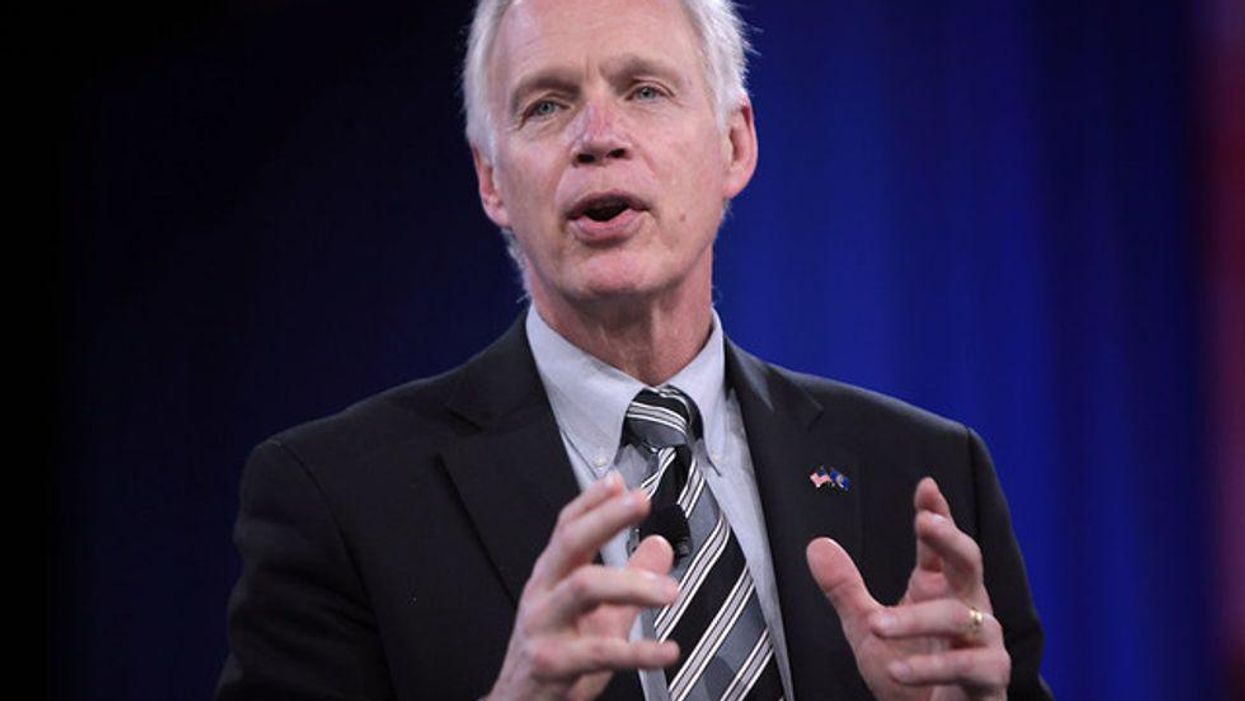Ron Johnson Scheming To Repeal Obamacare In 2023
Sen. Ron Johnson (R-WI) said Monday that if his party regains control of Congress in Washington, D.C., it will again push to take away health insurance from tens of millions of Americans.
In an interview with the right-wing website Breitbart — first flagged by the progressive research group American Bridge 21st Century — Johnson was asked what Republicans would do if they win back the majority in the November 2022 midterms.
The second-term Republican replied by noting that as long as President Joe Biden is in the White House, they will be unable to pass much legislation — but could use the next two years "to stop any further slouching toward Gomorrah," a reference to the late extreme right-wing jurist Robert Bork's 1996 book blaming the decline of America on liberalism, and "any future slide toward socialism."
Johnson then noted that if Republicans can win back the White House in 2024 and maintain control of Congress, they need to have a plan in place to "make good on what we established as our priorities."
He specifically cited getting rid of the Affordable Care Act, enacted in 2010 and commonly known as Obamacare, saying, "For example, if we were going to repeal and replace Obamacare — OK, I think we still need to fix our health care system — we need to have the plan ahead of time so that once we get in office, we can implement it immediately, not knock around like we did last time and fail."
Like many other Republicans first elected in the 2010 tea party wave, Johnson ran originally on a promise that he would "repeal and replace" Obamacare.
"Ron will vote to repeal the Health Care Bill and replace it with market-based solutions that will include: portability, malpractice reform, mandate reduction, insurance purchase across state lines, lower costs, and a safety net for those with pre-existing conditions," the issues section of his 2010 campaign site noted.
Donald Trump ran for president in 2016 on an explicit but vague promise to "immediately" replace Obamacare with something "terrific" that would guarantee health insurance coverage to every single American.
Without any actual plan to do that, Trump in 2017 signed on to a congressional GOP health care plan that the Congressional Budget Office said would have kicked 23 million people off of their insurance. Johnson repeatedly backed Trump's proposals, but the Republican majority in the Senate could not muster the needed 51 votes for any of multiple attempts to repeal Obamacare.
Johnson vowed in 2017 that he would not give up on finding a way to get rid of Obamacare. But by 2018, the once-unpopular law had become significantly more favorably viewed by the American public, and Republicans began to scrub their websites of any repeal-and-replace language.
Johnson's own campaign issues page no longer mentions Obamacare at all, and his old "Real Reforms for Health Care" page is now gone.
As of last summer, Department of Health and Human Services data showed that about 31 million Americans now receive health insurance coverage thanks to the Affordable Care Act.
According to the Kaiser Family Foundation's tracking poll, as of October the law enjoyed 58% public approval and only 41% disapproval.
But Obamacare's success and popularity have not deterred Johnson, whose own approval ratings are in the mid- to low 30s, from his quest to get rid of it.
Johnson's latest comments come just weeks after he said that he did not think affordable child care was society's problem.
The Wisconsin Republican, who in 2018 had an estimated net worth of more than $39 million, told a reporter in January, "People decide to have families and become parents. That's something they need to consider when they make that choice. I've never really felt it was society's responsibility to take care of other people's children."
"If you're proposing that the federal government incur even more deficit spending to provide child care for parents? I mean, I don't see how that's a solution at all," he added.
Reprinted with permission from American Independent





